MSW - Master of Social Work
Accredited since 1984
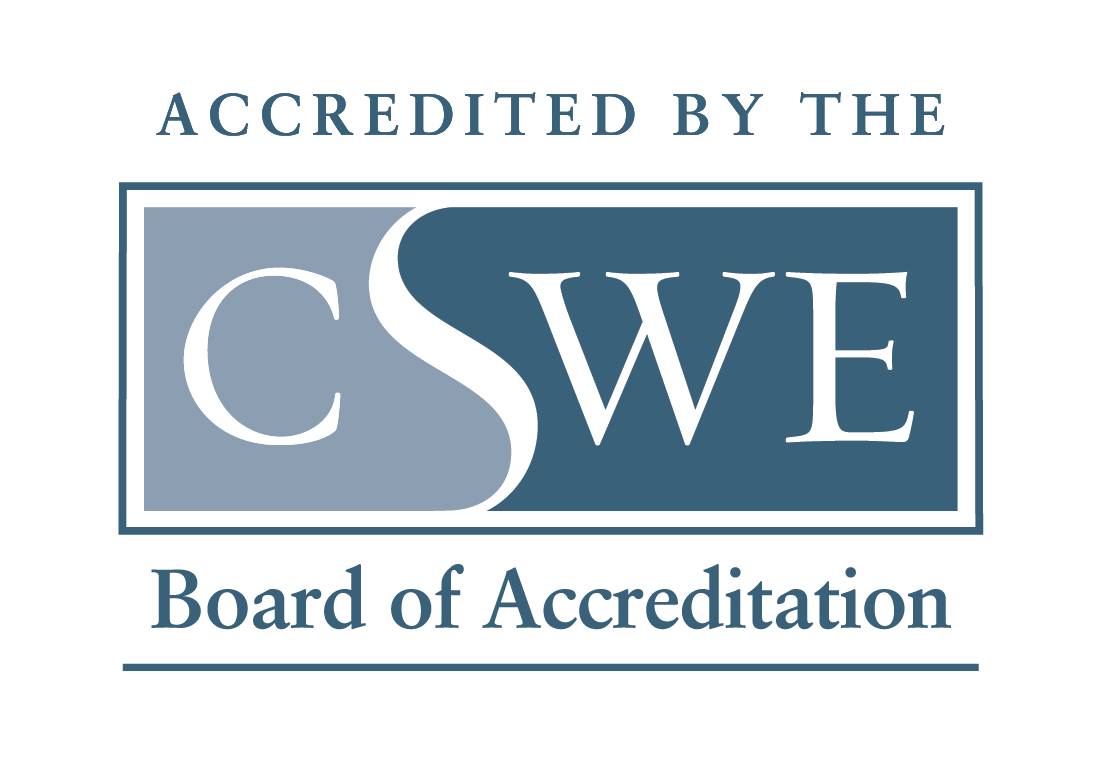
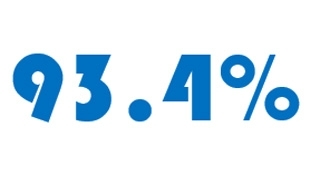
the share of students employed at graduation
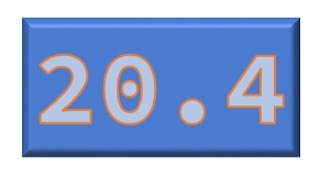
the average MSW class size (2017-18)
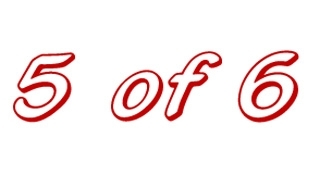
the share of students who graduate in 4 years or less
Apply to the M.S.W.
School Certification option
I would like certification so I can practice in a K-12 school settings.
M.S.W. / M.P.A. option
I would like both an M.S.W. and a Master of Public Administration.
Curriculum Pathways
Course Descriptions
Service Learning
Tell me about service learning and study abroad opportunities.
Student Scholarships
I am looking for information about student scholarship and graduate assistantships.
Honor Society
Student Organization
Tell me about the Master of Social Work Student Organization (MSWSO).
Library Resources
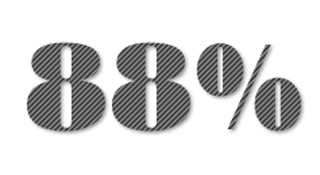
the percent of recent graduates who feel that the MSW adequately prepared them to enter, or advance, their career
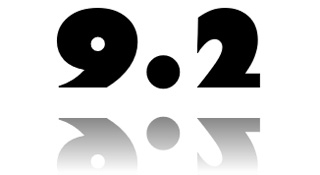
average number of credit hours attempted by MSW students in a semester (Winter 2018)
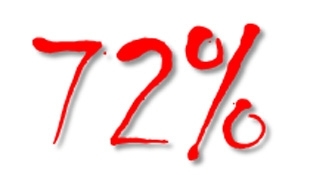
the percent of MSW graduates who pass their Clinical Licensure Exam on the first try (2008-2017)
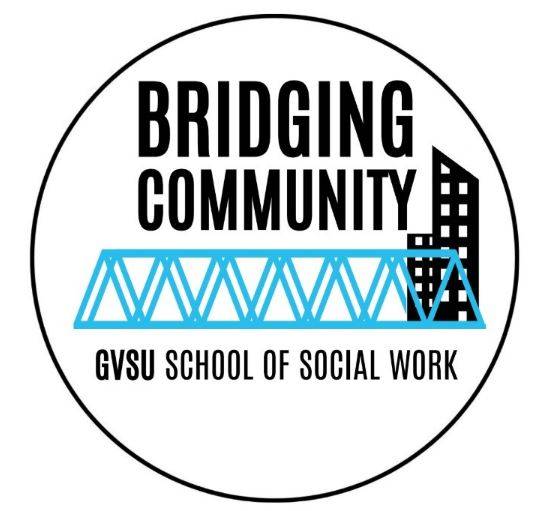
Would you like to have a conversation about our MSW program?
Please join us at an information session held once or twice each month.
See details on the Admissions page.
Ask Admissions. Prof. Haresh Dalvi is the Associate Director for MSW admissions.
Contact Dr. Dalvi ([email protected]) if you want to discuss the MSW program, application process, advanced standing criteria, your graduate school options, or your career objectives.
Application deadlines:
See MSW Admissions
Costs and Financial Aid
The completion of the MSW normally requires a minimum of 60 credit hours. Students with advanced standing may need as few as 38 credit hours. For information on tuition per credit hour and other fees, please visit the costs portion of the GVSU Financial Aid website.
For scholarship information and graduate assistantship information, please visit the SSW student opportunities page. For other financial support and filing for FAFSA, please visit the GVSU Financial Support website.
The Graduate School provides funding for student conference attendance and research projects through the Academic Conference Fund and Presidential Research Grants.
Key People
Graduate Program Director: Jamie Langlois
Field Study Coordinator: Katie Scheuerle
Career Center contact: Dayna Phillips
Library liaison: Ashley Rosener
College Dean: Sherril Soman
School Director: Paola Leon
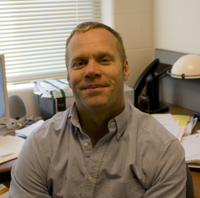
Scott Berlin is the School Director.
Faculty:
- James Ash
- Scott Berlin
- Brandi Berry
- Joshua Bishop
- Rosalynn Bliss
- Kristine Boone
- Joan Borst
- Beth Burguard
- Myra Burton
- John Carman
- Tracy Cyrus
- Dianne Green-Smith
- Lihua Huang
- Jerry Johnson
- Priscilla Kimboko
- Jamie Langlois
- Matthew Langlois
- Robert Lathers
- Salvador Lopez-Arias
- Latrece Renee McDaniel
- Cray Mulder
- Emily Nichols
- Lois Owens
- Kathleen Papke
- Sally Pelon
- Melissa C Selby-Theut
- Steve Smith
- Robin Smith-Colton
- Timothy Tuthill
- Derik VanBaale
- Melissa Villarreal
- Bethany Vukusic
- Carla Waite
- Vanessa Werle
- Leslie White
- Sarah Zuidema
Employment Outlook and Career Advice
This Could Be You: The Many Faces of Social Work (from the National Association of Social Workers - Massachusetts Chapter)
Connect Early, Connect Often
Make regular appointments with Dayna Phillips in the Career Center and with your faculty advisor to discuss your post-graduation plans. (Consult Banner to identify your advisor.)
Your field studies are supervised practice opportunities that allow for integration of your competencies and coursework into professional and community settings. Successful field experiences are the launching point for a rewarding career as a social worker. Katie Scheuerle and Amanda Stansbie will work with you to find the most appropriate placement and ensure you have the tools to get a great field experience.
Participating in events sponsored by the Master of Social Work Student Organization builds you network of contacts with your classmates and with leaders in the local social work field. Strong professional networks are import for your career development.
BLS Occupational Outlook
According to the U.S. Bureau of Labor Statistics, overall employment of social workers is projected to grow 16 percent from 2016 to 2026, much faster average for all occupations. Increased demand for healthcare and social services will drive demand for social workers, but growth will vary by specialization.
Below are some BLS Occupational Outlook profiles for social work and related fields:
Selected job boards
- Catholic Charities West Michigan
- Idealist.org Career Center
- iHireSocialServices
- Lumity NPO.net (Chicago area)
- Michigan Department of Health and Human Services
- NASW Social Work Career Center
- NASW Michigan Career Center
- Social Work p.r.n.
- SocialWorkJobBank
- Wellspring Lutheran Services
- Work for Good
- more social work-related job boards from the University of Michigan
Program Transparency
Graduation rates
Of the students that started the MSW program in Fall 2018 or Winter 2019, 90.7% were retained into their second year.
Of the students that started the MSW program between Fall 2015 and Winter 2016,
- 16.2% completed the MSW in 1 year
- 63.4% completed the MSW in 2 years or less
- 88.7% completed the MSW in 4 years or less
Class sizes
- The average MSW class size was 18.5 in 2019-2020
- The range of MSW class sizes was 6 to 30 students in 2019-2020
Registration:
- 33% of MSW students registered for 12 or more credits in Fall 2019
- 60% of MSW students registered for 9 or more credits in Fall 2019
- the average student course load was 9.4 credit hours in Fall 2019
Post-Graduation
- 93.4% of 2017-18 MSW graduates are employed.
- 88% of recent graduates feel that the MSW adequately prepared them to enter, or advance, their career.
- 72% of MSW graduates who take it, pass their Clinical Licensure Exam on the first try (2008-2017).
Student Body Profile
MSW students at time of graduation, August 2014 to April 2019 (Total graduates: 780)
- Age under 24: 34%
- Age 25-29: 40%
- Age 30-39: 18%
- Age 40+: 8%
- Female: 85%
- Male: 15%
- African-American / Black: 8%
- American Indian or Alaskan Native: 1%
- Asian / Pacific Islander: 1%
- Hispanic: 5%
- Mixed-race: 3%
- White: 81%
- International (on student visa) 1%
